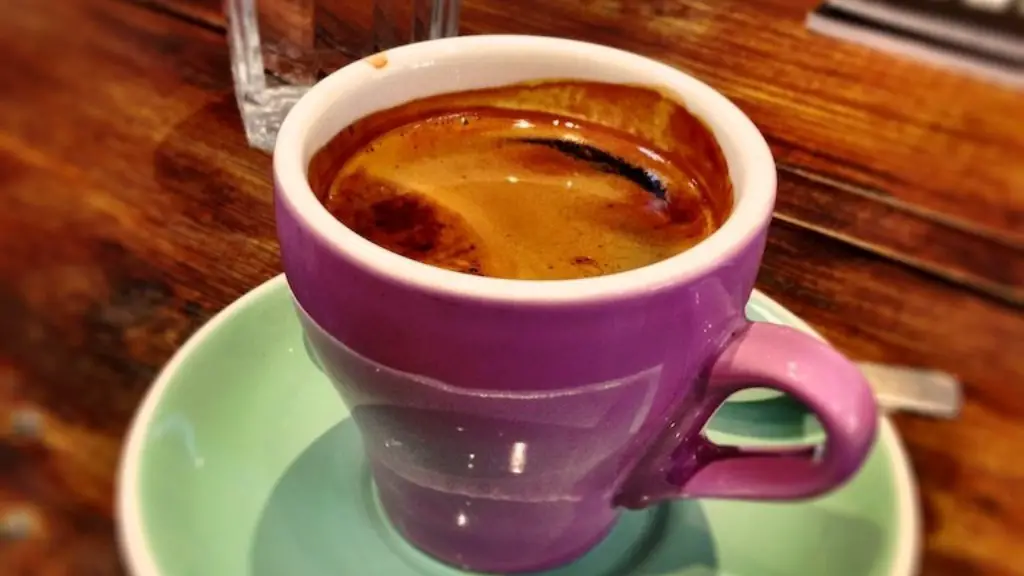Coffee is a part of many people’s daily routines: it wakes us up and helps us focus. As the world’s most widely enjoyed hot beverage, its popularity has led to a great debate between experts – can coffee be consumed on a keto diet?
What is a keto diet? A ketogenic diet is a low-carbohydrate, high-fat diet that involves significantly reducing carbohydrates, typically to a level of 50 grams or less per day. This reduction in carbohydrates causes a chemical reaction in the body that produces ketones, which help create energy. Proponents of a ketogenic diet tout its many benefits in terms of weight loss, improved mental clarity and physical performance.
Coffee is naturally very low in carbohydrates and fat, but some varieties are made with milk, creamers and other added ingredients, which can increase its carb content. It’s important to check labels and choose products that contain only carbs from natural ingredients. Some people may even opt for black coffee with no calorie-rich additives. However, even with just natural ingredients, there’s still a risk of kicking your body out of ketosis because of the caffeine and sugar that are naturally present in coffee.
The caffeine found within coffee increases your body’s ability to make energy and can boost metabolism. This may help you lose weight when combined with a healthy diet and regular exercise, however it is important to note that no scientific studies have been conducted linking the effects of caffeine directly to weight loss. Caffeine can also have some negative side effects for those on a keto diet. It can raise blood sugar levels, affecting ketosis and impairing the body’s ability to use its own fat for energy. In addition, it can cause dizziness, headaches, irritability and many other unpleasant symptoms.
As such, enjoying coffee while on a ketogenic diet is fine as long as it is paired with proper nutrition. If possible, try to limit your coffee intake to one cup per day and instead add other zero- or low-carb drinks to your diet, such as herbal tea, water and sparkling water.
However, if you are not on a keto diet and just want to drink coffee for its flavor and health benefits, there are a few tips for choosing coffee wisely. Always opt for high-quality coffee beans, such as Arabica, as they have lower levels of caffeine and contain powerful antioxidants. If you’d like to add cream or milk to your coffee, choose high-fat options such as heavy cream, coconut cream or almond milk.
Ultimately, the decision to drink coffee on a ketogenic diet is a personal choice. If you do decide to drink coffee, always keep an eye on your diet and consult with a healthcare professional if you have any concerns.
How Coffee Affects Cholesterol Levels
Many people are concerned about the impact that coffee may have on their cholesterol levels. Fortunately, research has shown that drinking moderate amounts of coffee (three to five cups per day) can be beneficial for some people, as it can raise HDL (or “good”) cholesterol levels. This might be due to the presence of phenolic compounds in the beverage, which work to inhibit the oxidation of LDL (“bad”) cholesterol in the body. Coffee consumption has also been linked to a lower risk of type 2 diabetes, as it decreases inflammation and helps regulate blood sugar levels.
In addition, research has shown that decaffeinated coffee does not affect cholesterol levels as much as regular coffee, and it may even have a more positive impact. For example, one study found that decaffeinated coffee was more effective at raising HDL cholesterol levels than regular coffee, which could be due to the presence of chlorogenic acid in the beverage.
However, it’s important to remember that those on a keto diet need to be cautious when it comes to coffee consumption, as high levels of caffeine can still affect blood sugar levels and kick you out of ketosis. If you decide to drink coffee, always choose natural options with minimal or no added sugar or other ingredients.
How to Manage Caffeine Intake on Keto
Consuming too much caffeine can be dangerous, so it’s important to know your limits and monitor your caffeine intake while on a keto diet. In general, the safe range for adults is no more than 400 mg of caffeine per day, which is the equivalent of four 8-ounce cups of coffee.
Some people might require more or less caffeine depending on their body’s sensitivity. If you find that you’re having trouble staying awake or focus throughout the day, you could adjust your caffeine intake slightly. If you’re feeling jittery, anxious or otherwise overwhelmed, reduce your supply and look for alternatives, such as herbal teas or decaffeinated coffee.
It’s also important to keep in mind that caffeine can have a diuretic effect, meaning that it can cause you to lose more water than you’d normally drink. This could be an issue if you’re not drinking enough water while on a keto diet. Make sure you are drinking enough fluids to offset the diuretic impact of drinking coffee.
Can You Make Coffee Keto-Friendly?
Adding cream or milk to your coffee can make it sweeter and more satisfying, but it can increase the carb and calorie content significantly. In order to make your coffee keto-friendly, substitute cream and sugar with a low- or zero-carb sweetener such as stevia, monk fruit, erythritol or allulose. You can also add coconut oil, heavy cream, ghee or MCT oil to your coffee for an extra boost of healthy fats.
If you’re looking for an even more convenient option, you can purchase keto-friendly coffee mix, which is typically made with MCT oil, collagen, butter and/or coconut oil. However, it is important to note that these products generally contain processed ingredients and sugar-free sweeteners, so they may not be suitable for everyone. Once again, consult with a healthcare professional if you have any reservations.
Health Benefits of Coffee on Keto
Despite the potential risks associated with overconsumption, drinking up to four cups of coffee per day can still have certain benefits for those on a ketogenic diet. For starters, it can provide an energy boost that can help with exercise and productivity, as well as improve mental clarity and focus.
Coffee is also rich in antioxidants, which can help protect against inflammation and free radical damage. This, in turn, can protect against diseases like cancer, heart disease and brain ageing. In fact, some studies suggest it can even help combat the effects of ageing in general.
While caffeinated beverages are not necessary for a healthy ketogenic diet, drinking a cup of coffee in moderation can certainly be beneficial. Before you start drinking coffee while on a ketogenic diet, make sure to assess your personal tolerance and adjust amounts accordingly.
The Influence of Exercise on Caffeine Intake
Another factor to consider when drinking coffee while on a keto diet is exercise. If you’re planning on exercising moderately or vigorously, make sure to reduce your caffeine intake to avoid negative side effects. Studies have shown that athletes who drink excessive amounts of coffee can experience increased blood pressure, increased heart rate and increased breathing rate, all of which can interfere with performance and overall well-being.
The same caution applies to those who are just starting out on a keto diet. If you’re not used to consuming high amounts of caffeine, your body may be more sensitive to its effects and should therefore have a lower tolerance for it. If you do decide to drink coffee while on a keto diet, always make sure you’re doing so in a balanced and sensible way.
Conclusion
While the exact effects of consuming coffee while on a ketogenic diet can be difficult to predict, it’s generally safe to drink up to four cups per day as long as you’re consuming natural coffees and monitoring your caffeine intake. Additionally, make sure to account for any potential side effects, as well as the potential impact on exercise performance. However, if you’re not on a keto diet, moderate coffee drinking can offer several health benefits for both body and mind.





